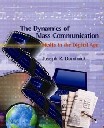1. Finding City and State Government Many local governments are online. It is time to find out some more information about your hometown. Find a directory of city employees through the community's web page. If you cannot find your city, try the local school system. Next, try a nearby town. See what information you can gather online. 2. Newsgroups Sometimes, rumors and idle chitchat pays off for a reporter. The Internet is great for providing both. The best-known source for current events chitchat is online newsgroups (or Usenet). Newsgroups existed prior to the World Wide Web and provided easy discussion and information exchange. Pick a current topic out of the newspaper. Find a newsgroup with an interest in that topic. For example, if you choose a military conflict, you might look for newsgroups about the involved countries. Most email programs contain newsgroup access. You may also look at groups.google.com. 3. Fill in the Gaps Take a current news story and think of a detail that has been left out. For example, if your Senator missed a vote, you might wonder how many other votes he's missed. Answer the question from a non-news Internet source. 4. Digital Divide Visit a few news sites and look at the stories. Avoid sports and weather and concentrate on the news stories. Who is best served by this news? Who is left out? | 


 2002 McGraw-Hill Higher Education
2002 McGraw-Hill Higher Education